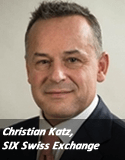European capital markets should be more focused on serving the needs of investors and listed companies rather than intermediaries, a report by the Federation of European Securities Exchanges (FESE) has concluded.
In a paper published today, called the ‘Blueprint for European Capital Markets, FESE said both the industry and regulators need to rethink the way companies and investors interact in order to increase levels of investment in Europe and bolster economic growth.
Among its recommendations was a call to focus on the end-users of capital markets, with exchanges and policy makers doing more to serve the needs of listed businesses, buy-siders and retail investors.
“As the Kay Review has concluded, the chain of intermediaries standing between investors and their investment has become too long,” the report said. “Greater complexity of markets creates many problems in addition to high proportion of passive investment.”
It also said the way the industry thinks about costs has been too focused on the broker community rather than their clients. It criticised the EU’s Financial Services Action Plan as being narrowly focused on costs borne by intermediaries, meaning policymakers lack the tools needed to measure the cost of investing for end-investors.
FESE called on regulators to reduce complexity in the market to improve the end-user experience, citing recent work to simplify the US capital market.
“The US, which has a market structure that is generally accepted as being too complex, is on a path to review its structure to reduce this complexity” it said. “While we have so far avoided the same level of complexity in Europe, many investors complain that transparency has decreased and cost of complexity has increased after the introduction of MiFID I.”
The report added that implementation of MiFID II will be vital to determining whether European capital markets become even more complicated and potentially put off investors.
However, it did accept that some of the reforms in MiFID II offer the potential to improve certain aspects of markets, particularly their transparency, which would make them more attractive to both investors and listed firms.
FESE’s president, Christian Katz, also stated that regulators have focused too much attention on the pan-European market and neglected local issues.
“A lot of the financial ecosystem, particularly for the kind of small- and mid-cap that we need to attract to capital markets, is very locally focused, and the EU needs to recognise this instead of just focusing on the pan-European issues,” he explained.
FESE wants European regulators to devise a tick size regime with SMEs in mind and look at how market features such as auctions and dark pools could be better used to improve liquidity for smaller shares.
It wants the EU to make it its goal to increase market capitalisation to over 100% of European GDP by 2020, mainly through encouraging more companies to seek a public listing. Currently, the EU’s market capitalisation is around 75% of GDP, whereas in the US it is well over 100%.
